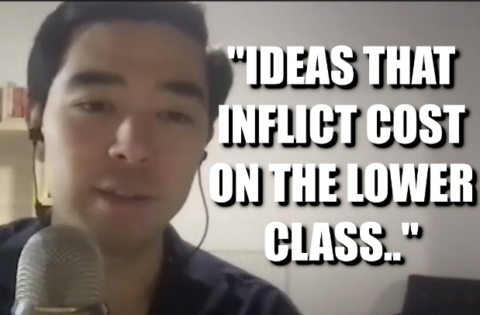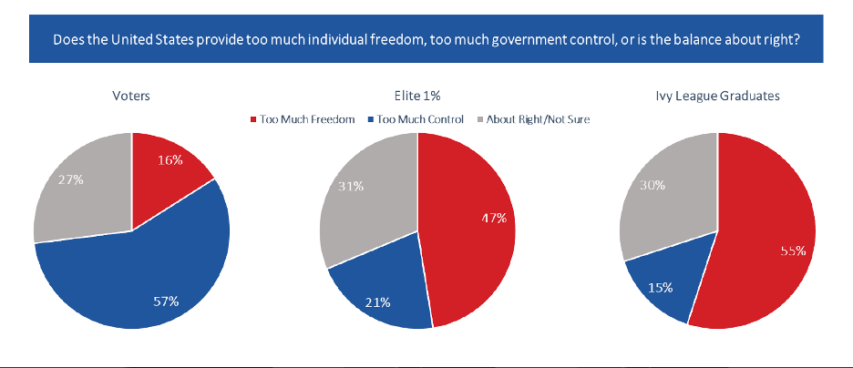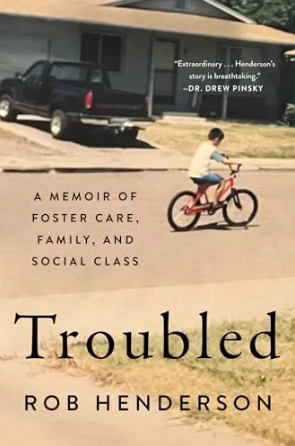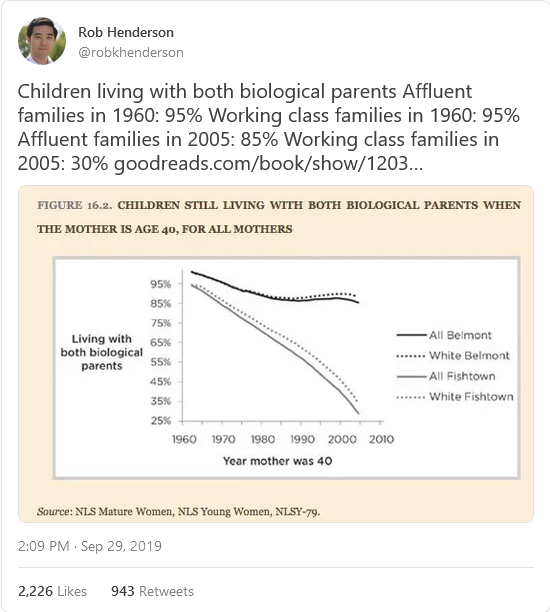Then there is the acceptance of what can only be described as unconventional lifestyles. Gay rainbow gender-bending madness is one thing. It seems progressive. Sodomites used to get ten years of hard labour. Look how advanced we have become.
But now they’ve moved on to the kids. It is easy to believe a listless, drug-addled elite might indulge in sexual degeneracy just for the hell of it. But how do we explain kindergarten teachers teaching their pupils about pronouns? Doctors emotionally blackmailing parents by insisting that the alternative to mutilating their children is their suicides? Or civil servants quietly putting gender-neutral bathrooms in public spaces?
How do we explain any of this? How do we even explain the emergence of transgenderism at all? There have been transexuals and gender dysphorics throughout history. They were typically understood as an offshoot of homosexuality, the extreme end of the effeminacy spectrum, and a vanishingly small fraction of the population.
But the current contagion is unusual and is clearly artificial. Its scale can only be a result of active promotion. Much of that is accomplished via the media and fellow travellers who champion these activities. But it is helped along by a collection of other professionals, and any attempt to question it is met with energetic pushback.
It is apparent that much of this comes from on-high, a literal top-down initiative. In less than twenty years we have witnessed a journey that began with gay rights and now includes active promotion of sexual deviancy to children, none of it natural or wanted by the majority. There is lots of speculation as to why this may be, including the part it may play in a comprehensive depopulation agenda.
What is apparent is that the professional class who endorse and promote this perceive it as an exercise in tolerance.
The notion of tolerance has typically been invoked for the distasteful, a last line of defence when direct measures fail, not a behavioural response indicating sophistication.
We rely on tolerance for things we dislike but cannot avoid. We learn to tolerate a persistent whine from an air conditioning unit, a noisy neighbour, or a noxious smell. But our goal is always to remove the source of the problem. Tolerance is a stopgap only when more permanent solutions are absent.
Their belief that tolerance is a virtue is one of the greatest shortcomings of today’s chattering classes. It is exactly the kind of signal error that exemplifies the disconnect between globalist elites and their obedient cheerleaders. The mechanism here seems to be a kind of learned override to natural disgust or discomfort. When others then object to whatever letter they have just added to the LGBTQWERTY+ community on the basis that it can’t be healthy or normal to endorse this stuff, that learned response includes the flare of superiority at your obvious backwardness.
How satisfying it must feel to have your natural inclination toward superiority endorsed in this way. Like whole food vegans at a Medieval banquet, it must provide an irresistible sense of smugness to know that you are the one-eyed man in the rainbow-decked land of the blind, with the uneducated hopelessly lost in their backward understanding of the benefits of sexual liberation.
While elites and their public relations machine happily endorse this misplaced emphasis on tolerance, all evidence suggests the elites themselves are not tolerating anything, despite what their obedient minions may think. They really are indulging in the cocaine-fuelled all-star human sacrifice orgies for real because they are cosmically bored and rich.
They aren’t rising above intrinsic disgust responses, they have sexualized them. They seem to have fetishized everything we consider unacceptable. Trafficked kids, femboys, chicks with dicks, gangbangs, farmyard orgies, human sacrifice, the lot.
They may even experience a thrill in seeing just how far they can push public morality as many have suggested, and especially how far they can get otherwise normal middle-class people to champion deviancy and hedonism most cultures find distasteful enough to ban.
The excessive promotion of tolerance is a defence against unnatural practices bored elites are rumoured to engage in. The professional class, for all their faults, probably aren’t into human sacrifice or animal orgies. So their response is to elevate the importance of visible acceptance of alternative lifestyles, hence gay kids, castrated boys, invented genders and other absurdities they cannot possibly believe themselves, and all of it instantly conveyed to one’s peers with nothing more than a multicoloured flag.
To top it all when they see how normals react, those unmoved by inept calls to be more understanding about sexual abuse, when they see parents reach for the shotgun at the very idea of sexually mutilating children, they get to invoke the conjoined twin of their cultivated tolerance, namely artificial superiority. The deep belief that they see further than the yokels with their primitive instinct to actually protect the vulnerable and embrace some basic sense of public morality.
These absurd beliefs can be observed in our educated classes because they ostentatiously demonstrate tolerance and its newfound position as the supreme virtue of the post-Christian age, one of the most successful public relations campaigns ever run by elites.
Spaceman Spiff (guest-post) “Praying to Absent Gods”, Postcards from Barsoom, 2024-07-16.
December 15, 2024
QotD: Elite luxury beliefs – cultivated non-disgust
September 13, 2024
QotD: Cargo cult thinking and status seeking
The pioneering sociologist Thorstein Veblen’s Theory of the Leisure Class (1899) was the first systematic attempt to explain how status displays (e.g., conspicuous consumption) operate to communicate class membership among social elites. Most people never learn to think critically about such status-display behaviors, so that their emulation of the “elite” is thoughtless and unconscious. This behavior often takes the form of displaying symbols of wealth (e.g., designer-label clothing or luxury automobiles) as if mere possession of these symbols meant the same thing as actually being wealthy. Driving the same car or wearing the same clothing brands as a movie star, a software entrepreneur or a professional athlete is not the same as having millions of dollars in the bank, but we often see people who don’t seem to grasp this fact. The young guy with a $45,000-a-year job driving around in a new Cadillac Escalade wants to impress people by pretending to have wealth he doesn’t actually have. His luxury SUV is a status symbol, but the status he’s attempting to display is an illusion, if he’s leasing this vehicle for $1,800 a month (nearly half his annual income) while living with his mother. This is a cargo-cult type of behavior, and is in fact quite the opposite of behaviors that actually produce wealth. A young man who hopes to become wealthy would be best advised to live within his means, preferring to put money in the bank rather than engaging in ostentatious displays of a luxurious lifestyle. Nevertheless, we often see young people go deeply in debt to indulge their appetite for status symbols, and this cargo-cult mentality can also be witnessed in acts of criminal stupidity […]
Flashing actual stacks of money is the crudest possible status display, and I can 99.9% guarantee you that anyone who does something like this on social media is engaged in some kind of criminal behavior. People who obtain wealth by honest means are not prone to such shameless ostentation, and this kind of cargo-cult behavior exhibits a level of stupidity that is not usually compatible with economic success.
Robert Stacy McCain, “The Cargo Cult Mentality”, The Other McCain, 2019-12-20.
August 9, 2024
Domicidal maniacs in charge
Lorenzo Warby provides an oh-so-useful word to accurately capture what the diversity-at-all-costs elites running most western countries these days are actually up to:
Domicide is the destruction of home. It comes in the “hard” version — the physical destruction of houses and infrastructure.
Domicide also comes in a “soft” version — flooding localities with new people, separating people from, and otherwise degrading, their heritage. When folk say Britain is becoming “unrecognisable”, it is the domicidal effect of mass migration they are referring to.
The UK is suffering from a domicidal elite, one that uses mass migration to break up working-class communities; asymmetric multiculturalism to elevate incoming cultures over those of native English (the Celtic fringe get minority brownie points); favours non-“white” faces in advertising; asymmetric race-swapping in entertainment against the native English; denigration of British history as racist, white supremacist, imperialist, colonialist, etc.
Much of this is insulting virtue-signalling allied to, or presenting, cartoonish (simplified) and caricature (distorted) history. It all undermines social cohesion. But it is the use of migration policy as a systematic weapon against the resident working class which does the most damage. Though two-tier policing — obviously treating Muslims in particular with a deference not shown to the natives, especially when it comes to policing speech — is also highly corrosive of social cohesion.
Many working-class communities in Britain were already fairly dysfunctional — though the British state is not innocent in those dysfunctions1 — and sections of the British working class are very far from admirable. None of this justifies the use of mass migration to make things worse for such folk, however much it may help to explain the moralised class contempt that underlies so much of modern progressivism and modern managerialism.
To improve such things, to “level up”, requires a strong sense of how to create and maintain social order. Modern progressivism is strongly antipathetic to such understanding. To “level up” also requires a strong sense of custodianship, which managerialism typically lacks: particularly progressivist managerialism.
Indeed, modern feminist, progressivist, managerialism—in its lack of custodianship; lack of social solidarity;2 in its antipathy to taking the problems of social order seriously — is running the British state into the ground. The post-medieval British aristocratic and mercantile elite did a much better job of state management. But those elites had mechanisms — such as duelling, that forced men to defend their reputation at the risk of their life, and grand country houses, that turned into expensive investments in social isolation if you behaved badly — that selected for character.
Nowadays, the British elite only selects for capacity and even that is being degraded by DEI undermining the signals of competence. It turns out, over the longer term, character matters more than capacity. For capacity without character selects for manipulative, anti-social personalities that degrade institutions over time.
1. For a particularly brutal depiction in fiction of the dysfunctional British welfare state — especially its school system — see Christopher Nuttall’s Mystic Albion series, especially the first book.
2. Feminisation of institutions and discourse has tended to degrade social solidarity, see Benenson et al, 2009. The most conspicuous example of this in the UK is how uncouth it is in elite circles to mention the systematic rape and sexual exploitation of underage working class girls by overwhelmingly Muslim gangs.
July 18, 2024
An elite luxury belief – “Diversity Is Our Strength”
In a guest-post at Postcards from Barsoom, Spaceman Spiff lists some of the cargo cult notions that have captured the imagination of many “elites” in western nations, like “Diversity Is Our Strength“:
Multiculturalism is pursued in Western countries with a religious mania. It is difficult to imagine anything closer to a belief system for today’s upwardly mobile professional than advocating for diversity and inclusion.
Most of the world views ethnic and cultural mixing as a dangerous, civilization ending activity. A threat to be guarded against, not an opportunity to be embraced. This has been the conventional view throughout history in almost every society.
The modern Western formulation has challenged this. Mixing cultures, especially those hostile to assimilation, is not just to be tolerated but encouraged. Alien peoples must be sought out and imported to increase the ethnic and cultural mix. We must extend every courtesy to those fundamentally incompatible with us in customs and manners. The ultimate expression of this ambition is open borders, a concept viewed with deep hostility by almost all non-Western countries.
Whatever the origins of such policies, the implementers of these ideas are everywhere. They work in corporations, public sector bodies, and NGOs. We find them in Starbucks and Walmart. Diversity is everywhere even though it makes little sense as an end in itself.
How do we explain the enthusiasm with which middle managers and HR workers have embraced such a destructive idea, including its corporate version of job and education quotas?
Competency itself can be hard to find even in ideal conditions, so why hobble your chances like this? Why intentionally seek to create brittle heterogeneous environments that reduce productivity and increase strife?
The simple answer is that sophisticates don’t succumb to primitive notions like preferring their own. These are urges to be resisted, like hunger while dieting. Racism is old hat and any noticing of differences is racism. After all, our elites do not behave like this, so the goal is to be observably anti-racist, just like them.
Some look at our globalist elites and see them mixing with an international set. As they hobnob around the world they certainly socialize with foreigners. Indian elites, Arab elites, and Chinese elites all mix with their Western equivalents. We see them at events like Davos or the global climate change meetings. A multicoloured constellation of traitors from every country, all getting along with each other because they are nothing like their fellow countrymen, and everything like each other.
What the dullards in the corporate HR world miss is that this is not a celebration of diversity. Most of those elites are nearly identical. Many attended the same universities. All speak English, the international language. They have similar views, including contempt for their respective compatriots.
There is no diversity at the very top, just an elitist outlook most of them share, and contempt for the peasants who surround them. White, brown, or black, we all look the same from the cultural stratosphere. Cannon fodder for their Olympian ideas, but nothing more. The elite view of mass migration is indifference, not enthusiasm.
The street-level version takes the superficial aspects of this phenomenon and worships it as the end goal since the underlying homogeneity of the elites is largely absent. Their goal is not to seek out that which we have in common with others but the less sophisticated observation of what makes us different, what makes us more “diverse.”
The midrange talent in the West have therefore convinced themselves celebrating overt differences in the form of multiculturalism is modernity. It is the future promised by Star Trek and other communist dreams. Colour won’t matter, just like Martin Luther King promised, so long as we overlook the long predicted consequences of their dream, the lowered wages, the erosion of trust and the eventual polarization of competing groups within our own nations we once kept at bay with more considered immigration policies.
May 31, 2024
“You only support that because it’s in your self-interest to do so”
Helen Dale considers the painful notion that political ideas that work for the “elite” (defined in various ways) may not work at all for people unlike members of any given “elite”:
When I reviewed Rob Henderson’s Troubled for Law & Liberty at Liberty Fund, I made this observation:
The reality that classical liberalism — the closest to my own political views, I admit — has at least a whiff of the luxury belief around it stings. It’s discomforting to acknowledge that what goes by the name of paternalism has its own intellectual pedigree, while liberalism can be a system developed by the clever, for the clever. “Highly educated and affluent people are more economically conservative and socially liberal,” Henderson says. “This doesn’t make sense. The position is roughly that people shouldn’t have to adhere to norms and if/when they inevitably hurt themselves or others, then there should be no safety net available. It’s a luxury belief.”
[…]
Joseph Heath […] uses the phrase “self-control aristocracy” to describe those who really do benefit from maximal freedom. These are people who can make better choices for themselves than any authority could make on their behalf. When the state or large corporates boss them (us) around, they (we) get really bloody annoyed. They (we) know better!
Heath’s phrase is simply a layman’s term for the personality trait various formal tests measure, and which overlaps with executive function to a considerable but as yet unknown degree.
Because I am self-conscious about my membership in the self-control aristocracy, I am acutely aware of the fact that, when I think about questions of “individual liberty” in society, I come to it with a particular set of class interests. That is because I stand to benefit much more from an expansion of the space of individual liberty than the average person does – because I have greater self-control. So I recognize that, while a 24-hour beer store would be great for me, it would be a mixed blessing for others […]
What does this have to do with libertarianism? It is important because every academic proponent of libertarianism – understood loosely, as any doctrine that assigns individual liberty priority over other political values – is a member of the self-control aristocracy. As a result, they are advancing a political ideal that benefits themselves to a much greater extent than it benefits other people. In most cases, however, they do so naively, because they do not recognize themselves as members of an elite, socially-dominant group, that stands to benefit disproportionately. They think of liberty as something that creates an equal benefit for all.
My response to reading Professor Heath’s piece was simplicity itself: I feel seen. I’ve even done the night school thing while working full-time. I’ve written books and chosen to play sports that require a long time and lots of skill to master. I retired at 45.
Politically, I’m not a libertarian. Libertarianism is a distinctive and largely American ideology (as the recent and bonkers fracas at its US Convention indicates) with philosophically unusual deontological roots. I am, however, within the British and French tradition of classical liberalism (which does assign individual liberty priority over other political values). And like many classical liberals I’ve been blind to problems of laws and governance for people unlike me.
I disclose this because I’ve worked in policy development in both devolved and national parliaments. I’ve probably given politicians and civil servants alike dud advice. There is almost certainly a shit policy out there (in either Scotland or Australia) with my name on it. However, this mind-blindness doesn’t only apply to people who advocate libertarian politics. I think it applies to a significant number of political ideologies just as strongly as it does to libertarianism.
That is, the ideology serves the inherited personality traits of those who promote it. “You only support that because it’s in your self-interest to do so” always struck me as a genuinely mean criticism of people who were involved in politics and policy (I may have been one of those people, natch). The problem — as I’ve been forced to accept — is that it’s true.
February 6, 2024
The Sky People hold very different beliefs to those untouchable Dirt People
Rob Henderson says that the gap is “Grand Canyon-sized” between ordinary Americans and the Ivy League grads who cluster at the top of every progressive organization:
55% of Ivy League graduates believe that the U.S. “provides too much individual freedom” compared with just 16% of ordinary U.S. voters.
Back in 2019, as I was developing what became the luxury beliefs framework, I read a recently issued chapter published by Cambridge University Press titled “Why Are Elites More Cosmopolitan than Masses?”
Authored by a team of social scientists, this 2019 paper reports stunning gaps in political views and outlooks between elites and ordinary people in various western countries.
In the introduction, they suggest that elite attitudes are expressions of cultural capital. That is, the large gap in views between elites and everyone results from elites drawing symbolic boundaries between themselves and the provincial masses.
Indeed, another report found that 65 percent of Americans believed that the most educated and successful people in America are more interested in serving themselves than in serving the common good. This view is held across the board — across age, gender, race, political party, and ideology.
The authors of the 2019 chapter write:
Mastering intricacies of gender and race relations discourse and behavior has become a marker for belonging to the cosmopolitan class, in a similar way that tastes for classical music and art were markers of bourgeois culture in the 19th and 20th centuries.
Interestingly, the researchers find that social background and ideological affinities account for elite similarities more so than educational attainment. This might be one reason why, despite obtaining the same degrees from the same institutions as many elites, I still retain an outlook reflective of my provincial upbringing.
Following my experiences in the Los Angeles county foster system, my adoptive family and I settled in a dusty lower-class town in the northernmost region of California—a place just as provincial as any rundown neighborhood in flyover country—where I spent most of my youth.
The authors of the paper measured the opinions of elites (those holding the highest positions in each sector) across various fields including politics, finance, academia, and media, as well as the opinions of ordinary people.
Relative to the masses, elites are more likely to agree with statements such as “We should do everything possible to fight climate change, even if it slows economic growth.”
And elites are more in favor of allocating authority not to local or national governments, but to global organizational bodies (e.g., the U.N.).
The researchers also found that elites are significantly more pro-immigration, as measured by the extent to which they agreed with statements like “When jobs are scarce, employers should give priority to people of [this country.]”
I thought about those results for a long time. Especially as I came across another study indicating that educated people are more likely to express prejudice toward immigrants who are described as highly educated, relative to less educated, and are therefore seen as job competitors.
Among university students, attitudes toward immigrants were most negative when the immigrants had a university education, and most positive when the immigrants had little to no formal education. It’s nice for the educated class when immigrants provide cheap hired help and open interesting restaurants. They’re less excited when immigrants are competing with them for the same jobs. If thousands of people with bachelor’s and postgraduate degrees from, say, China and India, were unlawfully entering the U.S. each day, my guess is current elite attitudes around border security would be very different.
In a way, it’s rather reassuring that the Sky People are still demonstrably human, based on the change in opinions when it’s their ox being gored …
January 13, 2024
Troubled by Rob Henderson
Stephanos Bibas reviews Rob Henderson’s autobiography Troubled: A Memoir of Foster Care, Family, and Social Class for the University of Chicago Law Review:
Life at the bottom is troubled. Charles Dickens, Victor Hugo, and many others have long shown us that. To understand criminal justice, education, and family law, we lawyers typically look to social scientists, and their external expertise does teach us much. But we often neglect lived experience. Occasionally, we should toggle from the dry regressions and clinical detachment of social science to the internal perspective and expertise of those who live through family breakup, foster care, disrupted schooling, drugs, and crime. And that is what Rob Henderson’s breakout memoir, Troubled, gives us: a window on troubled youth.1
Henderson, a brilliant young psychologist, illumines how harmful childhood instability is by reflecting on his own experience. He never knew his father, was abandoned by his drug-addicted mother, and bounced around foster care. After squandering much of his early education and drowning his rage in alcohol, drugs, fights, and vandalism, he managed to make his way through the Air Force to Yale and now Cambridge. But few of his friends escaped the wounds from their childhoods; many wound up unemployed, in prison, or dead. His eye is as keen as his intellect, recalling and reporting how adults in his life kept abandoning him and his fellow foster children and how they in turn acted out. As an outsider to the elites who dominate the Ivies, he also turns his critical eye on the groupthink and victimhood culture that is strongest among the most privileged. And building on literary historian Paul Fussell’s work, Henderson develops his own critique of the shibboleths that educated American elites use to set themselves—ourselves—apart while ignoring the harm to the rest of society.2
Henderson has much to teach us lawyers and legal scholars. He shows us how much we miss by focusing public policy on educational attainment and cost-benefit analysis, overlooking what is priceless: love and emotional attachment. The most important things in life can’t be quantified; at best, outcomes are mere proxies for them. We are more than our résumés! His account undermines our persistent habit of viewing humans as fully informed rational actors — a habit that makes much more sense in corporate law than in criminal law and the like. He showcases how poorly used adult autonomy harms children, leading to broken homes, drug addiction, numbness, and rage.
Lastly, Henderson critiques “luxury beliefs”, the term he coins for sociological opinions that are popular only among those who need not worry about their own survival. These beliefs are status signals to the educated elite who are not harmed by the fallout from any cultural shifts they might cause. But these beliefs corrode the social structures that children need to develop. (He could do more to develop the causal nexus to social harm, but his claims are still powerful.)
In short, Henderson’s memoir powerfully challenges prevalent views of education, family policy, and class. It shows how we hyperfocus on educational outcomes and other quantifiable goals at the expense of softer emotional goods. And it does it all in a plainspoken, understated voice that illustrates his points from his own lived experience and that of his buddies. Many will disagree with Henderson’s conclusions, of course, but scholars should grapple with his challenge.
Part I of this Review summarizes Henderson’s long journey from foster care to Yale. Part II canvasses his argument that adult instability breeds chaotic childhoods, leaving neglected kids to raise themselves in Hobbesian competition, impulsive indulgence, or reckless rage. Part III then develops Henderson’s signature concept of luxury beliefs and how nonjudgmentalism backfires on those at the bottom. Though one can quibble with some of his causal claims, his thrust is compelling. Finally, Part IV considers how Henderson’s account suggests reorienting some criminal justice, education, and family law reforms toward children’s need for stable structures to guide them.
1. Rob Henderson, Troubled: A Memoir of Foster Care, Family, and Social Class (forthcoming 2024) (on file with publisher). All further citations to this work are by page number in parentheticals in the text.
2. See generally Paul Fussell, Class: A Guide Through the American Status System (1983).
October 7, 2023
“Many people who hold ‘luxury beliefs’ … are oblivious to the consequences of their views”
Rob Henderson, guest-posting at The Free Press, illustrates several recent examples of well-connected people holding what he coined as “luxury beliefs” being suddenly introduced to the real-world consequences of their beliefs:
Recently, two high-profile supporters of “justice reform” were murdered.
At 4 a.m. on Monday, Ryan Carson, a 32-year-old social justice and climate change activist, was walking with his girlfriend in Bedford–Stuyvesant, Brooklyn, when he was stabbed to death by a stranger. Only a few hours earlier in Philadelphia, activist and journalist Josh Kruger was shot and killed in his home.
And two Democratic lawmakers who voted to “redirect funding to community-based policing reforms” have been recent victims of violent crime.
On Monday night, blocks away from the Capitol in Washington, D.C., Congressman Henry Cuellar was carjacked by three armed men. (The lawmaker survived the incident unscathed.) In February, Angie Craig was attacked in an elevator at her apartment building in Capitol Hill. A homeless man demanded she allow him into her home to use the restroom, then he punched her and grabbed her around the neck. She escaped after throwing hot coffee on him.
Of course, these people did not deserve harm because of their support for soft-on-crime policies. But I’ve long argued that many people who hold “luxury beliefs” — ideas and opinions that confer status on the upper class, while often inflicting costs on the lower classes — are oblivious to the consequences of their views. Support for defunding the police is a classic example.
Luxury beliefs can stem from malice, good intentions, or outright naivete.
But the individuals who hold those beliefs, the people who wield the most influence in policy and culture, are often sheltered when their preferences are implemented.
Some online commenters have said that my luxury beliefs thesis is undermined by these tragic events, because the victims were affluent and influential — and they still suffered the consequences of their beliefs.
But the fact remains that poor people are far more likely to be victims of violent crime. For every upper-middle-class person killed, 20 poor people you never hear about are assaulted and murdered. You just never hear about them. They don’t get identified by name in the media. Their stories don’t get told.
August 22, 2023
“… the theatrics employed by Hitler and Mussolini just seemed too weird and downright ridiculous to the British”
In Spiked, Ralph Schoellhammer discusses some of the difficulties the Green Gestapo, er, I mean the likes of Extinction Rebellion and their mini-mes like Just Stop Oil have been encountering with the British public:

Roderick Spode, 7th Earl of Sidcup, leader of the “Saviours of Britain”, also known as the Black Shorts.
Still from Jeeves and Wooster (1990).
I have long been convinced that one of the reasons why fascism never had a chance in Britain was due to the predispositions of her people. If nothing else, the theatrics employed by Hitler and Mussolini just seemed too weird and downright ridiculous to the British.
PG Wodehouse captured this perfectly in an exchange between a British wannabe fascist, Roderick Spode, and Bertie Wooster: “The trouble with you, Spode, is that just because you have succeeded in inducing a handful of half-wits to disfigure the London scene by going about in black shorts, you think you’re someone.”
I don’t intend to liken fascists to environmentalists, but Brits have at least expressed a similar, visceral distaste for the theatrics of eco-activist groups in recent years. Marching in black “footer bags”, pretending to be the voice of the people, is just as ridiculous as holding up traffic in an orange “Just Stop Oil” t-shirt.
The environmental movement becomes more absurd by the day. The Guardian‘s George Monbiot, for instance, has just called for the reintroduction of deadly wolves and lynxes to Great Britain, in order to manage a surging deer population. One can only hope that this call to action will have about as much success as his campaign against meat, milk and eggs, which Monbiot is convinced are an “indulgence” humanity can no longer afford.
Sadly, the same is not true in Germany, where the elites are all too keen to humour even the most extreme climate fanatics. German discount supermarket Penny recently decided to increase the prices of its meat and dairy products, to include the environmental costs incurred in their production, as part of a week-long experiment. The price of frankfurter sausages rose from €3.19 to €6.01. The price of mozzarella rose by 74 per cent, to €1.55. And the price of fruit yoghurt rose by 31 per cent, from €1.19 to €1.56.
While the usual suspects in the establishment are clearly excited by this idea that in the future even shopping at a discount shop might become the preserve of the rich, average Germans are less pleased. Germany’s public broadcaster, WDR, asked Penny customers what they thought about the price-hike experiment. Due to a lack of enthusiasm from shoppers, WDR decided to have one of its employees cosplay as a happy shopper. That taxpayer-funded broadcasters now have to resort to outright fraud in order to drum up support for idiotic climate action tells you everything you need to know.
May 6, 2023
QotD: The luxury beliefs of the leisure class
Thorstein Veblen’s famous “leisure class” has evolved into the “luxury belief class”. Veblen, an economist and sociologist, made his observations about social class in the late nineteenth century. He compiled his observations in his classic work, The Theory of the Leisure Class. A key idea is that because we can’t be certain of the financial standing of other people, a good way to size up their means is to see whether they can afford to waste money on goods and leisure. This explains why status symbols are so often difficult to obtain and costly to purchase. These include goods such as delicate and restrictive clothing, like tuxedos and evening gowns, or expensive and time-consuming hobbies like golf or beagling. Such goods and leisurely activities could only be purchased or performed by those who did not live the life of a manual laborer and could spend time learning something with no practical utility. Veblen even goes so far as to say, “The chief use of servants is the evidence they afford of the master’s ability to pay.” For Veblen, butlers are status symbols, too.
[…]
Veblen proposed that the wealthy flaunt status symbols not because they are useful, but because they are so pricey or wasteful that only the wealthy can afford them. A couple of winters ago it was common to see students at Yale and Harvard wearing Canada Goose jackets. Is it necessary to spend $900 to stay warm in New England? No. But kids weren’t spending their parents’ money just for the warmth. They were spending the equivalent of the typical American’s weekly income ($865) for the logo. Likewise, are students spending $250,000 at prestigious universities for the education? Maybe. But they are also spending it for the logo.
This is not to say that elite colleges don’t educate their students, or that Canada Goose jackets don’t keep their wearers warm. But top universities are also crucial for inculcation into the luxury belief class. Take vocabulary. Your typical working-class American could not tell you what “heteronormative” or “cisgender” means. But if you visit Harvard, you’ll find plenty of rich 19-year-olds who will eagerly explain them to you. When someone uses the phrase “cultural appropriation”, what they are really saying is “I was educated at a top college”. Consider the Veblen quote, “Refined tastes, manners, habits of life are a useful evidence of gentility, because good breeding requires time, application and expense, and can therefore not be compassed by those whose time and energy are taken up with work.” Only the affluent can afford to learn strange vocabulary because ordinary people have real problems to worry about.
The chief purpose of luxury beliefs is to indicate evidence of the believer’s social class and education. Only academics educated at elite institutions could have conjured up a coherent and reasonable-sounding argument for why parents should not be allowed to raise their kids, and that we should hold baby lotteries instead. Then there are, of course, certain beliefs. When an affluent person advocates for drug legalization, or defunding the police, or open borders, or loose sexual norms, or white privilege, they are engaging in a status display. They are trying to tell you, “I am a member of the upper class”.
Affluent people promote open borders or the decriminalization of drugs because it advances their social standing, and because they know that the adoption of those policies will cost them less than others. The logic is akin to conspicuous consumption. If you have $50 and I have $5, you can burn $10 and I can’t. In this example, you, as a member of the upper class, have wealth, social connections, and other advantageous attributes, and I don’t. So you are in a better position to afford open borders or drug experimentation than me.
Or take polyamory. I recently had a revealing conversation with a student at an elite university. He said that when he sets his Tinder radius to 5 miles, about half of the women, mostly other students, said they were “polyamorous” in their bios. Then, when he extended the radius to 15 miles to include the rest of the city and its outskirts, about half of the women were single mothers. The costs created by the luxury beliefs of the former are bore by the latter. Polyamory is the latest expression of sexual freedom championed by the affluent. They are in a better position to manage the complications of novel relationship arrangements. And even if it fails, they have more financial capability, social capital, and time to recover if they fail. The less fortunate suffer the damage of the beliefs of the upper class.
Rob Henderson, “Thorstein Veblen’s Theory of the Leisure Class – An Update”, Rob Henderson’s Newsletter, 2023-01-29.
March 9, 2023
Then: “Never be the first to stop clapping”. Now: “In our culture of exhibitionism, silence is suspect”
Chris Bray cross-posted this article by Christopher Gage, who had a painful realization while waiting on hold for a human customer service rep at British Gas:
British Gas has traded the lovely Ludwig van (much too excellent for these advanced times) for a two-chord earwig we once glorified as polyphonic ringtones. Whilst captive to the receiver, British Gas snatches the opportunity to douse you, an innocent and increasingly frozen bystander, in the warm soup of its right-on philosophy.
“British Gas is an inclusive company”, it purrs. “We believe all people, regardless of gender, ethnicity, or background, should be treated with dignity and respect.”
This divination, reader, was news to me. You see, I signed up to British Gas not for warm radiators and gas-lit stoves, but for the surreptitious fascism of a company with “British” in the name.
I assumed British Gas was firmly jackboots, shaved heads, and lumpy knuckles. On hold, I expected not a polyphonic ringtone but the greatest hits of Skrewdriver, with jaunty anthems such as “Keep Britain White” and “It’s All Because of The Jews”.
To my incomprehension, British Gas does not believe that Auschwitz was a holiday camp, nor, like Kanye West, that Hitler had his good points.
The horror. The horror.
Once you notice this culture of Obviousness, this modern theatre in which the captive audience is force-fed a diet of entirely humdrum beliefs shared by absolutely everyone save a few whack-jobs, you cannot unsee it.
A coffee shop I recently and regrettably frequented offered not only espresso and cortado and obscenely priced cheesecake but a syrupy treatise of that coffee shop’s founding beliefs. You’d think a coffee shop’s founding beliefs would be: “Buy coffee. Sell coffee.” No. This coffee shop was against all forms of discrimination.
Relentless is this modern culture of making the most obvious, universal statements and painting them as revolutionary.
When I decide I’d like gas piped into my home, or coffee piped into my stomach, my motivations hover around the middle of Maslow’s hierarchy of needs. Will this gas warm my home? Will this coffee induce a mild, somewhat enjoyable panic attack?
To reveal, like British Gas did, that one thinks all people should be treated with dignity and with respect is like revealing one doesn’t shit on a bus seat in full view of other passengers. That one is anti-shitting-in-public.
Much of the modern world is that episode of Seinfeld in which Kramer joins an AIDS march but refuses to wear the ribbon proclaiming his opposition to AIDS.
In our culture of exhibitionism, silence is suspect.
March 7, 2023
Getting rid of the SAT won’t help low-income or minority students – in fact, it’ll hurt them
Rob Henderson explains why the notion of getting rid of SAT requirements will to the opposite of what is being claimed, based on his own experience:

US Navy Seaman Chanthorn Peou takes the SAT aboard USS Kitty Hawk, 23 February, 2004.
US Navy photograph by Photographer’s Mate 3rd Class Jason T. Poplin via Wikimedia Commons.
I graduated in the bottom third of my high school class with a 2.2 GPA. Didn’t think of myself as “smart”. I thought a lot and read a lot. But I hated homework, teachers, rules, etc. I thought “smart” meant kids who did their homework and raised their hand in class. Those types.
My senior year of high school I took the required test to join the military — the Armed Services Vocational Aptitude Battery (ASVAB). Half my motivation to take this test was because I got to skip class. I spent the night before with my friends drinking Four Loko and playing Fight Night Round 3 on Xbox 360. Woke up with a hangover, chugged 20 ounces of Rockstar energy drink, and took the test. Afterwards, the Air Force recruiter showed me how to convert ASVAB to SAT scores. I got the same score as my smartest friend who always got straight-As and was headed for college. What the fuck? I thought.
At the time, I wasn’t aware these tests are thinly veiled IQ tests. The SAT, ASVAB, and the ACT are all highly correlated with IQ at about r = .8.
A study on Army recruits found that scores on an intelligence test, along with 2-mile run time, were the best predictors of success in infantry training.
Research on tank gunners found that replacing a gunner who scores around the 20th percentile with one who scores around the 55th percentile improves the likelihood of hitting a target by 34 percent.
To qualify, potential military recruits must score higher than roughly one-third of all who take the ASVAB. The lowest acceptable percentile score to join is 36 for the Air Force, 35 for the Navy, 32 for the Marine Corps, and 31 for the Army. By definition, the worst test taker who makes it into the military still scores higher than one-third of his or her peers. The military slices off the bottom third of standardized test-takers, not allowing them to join.
The psychologist and intelligence researcher Linda Gottfredson has written:
IQ 85 … the U.S. military sets its minimum enlistment standards at about this level … The U.S. military has twice experimented with recruiting men of IQ 80-85 (the first time on purpose and the second time by accident), but both times it found that such men could not master soldiering well enough to justify their costs.
In the 1960s, Secretary of Defense Robert McNamara launched Project 100,000 which lowered the testing requirement. This allowed people at the 10th percentile (80~ IQ) — a standard deviation lower than the previous standard — to join.
Supposedly, the aim was to alleviate poverty. LBJ had recently begun his War on Poverty program. The story was that getting more recruits into the military would help them move into the middle class. And they needed more recruits for the Vietnam War. Lowering recruitment standards was an easy way to get them.
Recruits of Project 100,000 were 9 times more likely to require remedial training and training took up to 4 times longer to complete compared to their peers who had entered under the higher score requirement. In Vietnam, men recruited under the lower testing threshold were 2.5 times more likely to die in combat.
Did the veterans who made it home achieve upward mobility? No. Compared to civilians with similar attributes who were not recruited, McNamara’s Morons (as they were later termed) were less likely to be employed, less likely to own a business, and obtained less education. Later, the policy changed to improve the talent pool of the armed forces. Higher ASVAB score thresholds were reinstated. Along with additional rigid requirements.
Today, eight out of ten Americans between 17 and 24 are ineligible for military service. Mostly due to obesity, medical issues, and criminal records.
Anyway, seeing my ASVAB score was the first time I learned I could have been a good student. It was possible. How many kids out there are like this. Kids who have fucked up lives and get bad grades which mask their underlying potential. Potential that a standardized test could reveal.
The SAT is a “barrier” according to that NYT op-ed. But it’s also a gateway. Most poor kids don’t take the SAT. Or any other standardized test. More should.
January 31, 2023
October 21, 2022
“The function of elected officials in California is the performance of symbols, the narcissistic status dance”
Chris Bray on the essentially performative nature of law-making in California:
That mayor is gone, now, but her rotating crop of replacements aren’t noticeably more committed to the quotidian reality of the city, 3.4 square miles of crumbling streets. They’re busy with the climate action plan, and with their very very serious regional outreach to achieve social justice and climate justice and, you know, something something justice something. They are performing their symbols.
So start with this premise: The function of elected officials in California is the performance of symbols, the narcissistic status dance.
Doing just that, the bumbling halfwit Richard Pan, a pediatrician turned Big Pharma water-carrier, has succeeded in the passage of his “disinformation” bill, AB 2098. Here’s how the legislative counsel explains the bill:
Existing law requires the applicable board to take action against any licensed physician and surgeon who is charged with unprofessional conduct, as provided.
This bill would designate the dissemination of misinformation or disinformation related to the SARS-CoV-2 coronavirus, or “COVID-19,” as unprofessional conduct.
But, as Igor Chudov notes, the bill — now the law — defines away its purpose, declaring that misinformation is “false information that is contradicted by contemporary scientific consensus contrary to the standard of care”. (And disinformation, the law says, is merely misinformation spread with “malicious intent”, disagreeing with the consensus plus being mean and bad.)
Being a longtime admirer of Richard Pan’s unique mind, I adore the definition of falsehood as something contrary to the consensus. It’s true, you moron, ’cause lots of people believe it! (The earth is at the center, and the sun revolves around it! Go to your room!) But back to Chudov’s good catch: The law evaporates if you can show that the consensus isn’t, and European public health regulators, among others, are doing that work. So if a doctor violates the consensus by telling a patient that the mRNA injections don’t prevent infection or transmission … okay, hold on a second.
So Senator Pan wishes to burn the witch, but he defines “witch” in such pudding-soft language that he gives the witch-burners nowhere to stand without sinking and vanishing. His declared purpose evaporates in the sloppiness of his mind. But he gets the symbol, declaring that he has declared that the witch should be burned. He gets his tweet.
October 19, 2022
Luxury beliefs in action
In The Critic, Sebastian Milbank looks at the young vandals, er “activists” who decided that throwing soup on a famous painting was a totally sensible and reasonable thing to do in order to direct our attention to their luxury beliefs:
On Friday Phoebe Plummer, a 21-year-old graduate student and activist, threw a tin of soup over a Van Gogh painting in the National Gallery, before proceeding to glue herself to the wall. “What is worth more, art or life?” she shouted in a manner reminiscent of an especially tiresome student at the Oxford Union. Whilst Phoebe didn’t exactly make it to Oxford, she was the beneficiary of a £15,000 a year boarding school education. Having rich parents probably helps if your lifestyle involves dying your hair pink, covering yourself in glitter and getting glued to a succession of defaced public monuments. The legal fees alone must be a headache.
That said, perhaps the organisation she cheerfully acts in the name of — Just Stop Oil — can foot the bills. After all, it’s a registered charity funded by the US-based organisation The Climate Emergency Fund. The Fund boasts on its website that “We provide a safe and legal means for donors to support disruptive protest that wakes up the public and puts intense pressure on lawmakers”, not to mention “Our robust legal team”. The charity comes with endorsements by high profile organisations such as fashion magazine Marie Claire and the backing of donors like the group’s co-founder, oil heiress Aileen Getty who is quoted as saying, “Don’t we have responsibility to take every means to protect the Earth”.
I can think of other organisations that provide “A safe harbour for donors” and put “intense pressure on lawmakers”, not to mention having “robust legal teams” — though they generally feature rather more Italian accents and bodies dumped in the river, and rather fewer celebrity endorsements (Frank Sinatra could not be reached for comment).
The Just Stop Oil organisation itself is even more explicit about its willingness to countenance potentially illegal means. In its FAQ section it calls for people to “use tactics such as strikes, boycotts, mass protests and disruption to withdraw their cooperation from the state”, and announces that they “are willing to take part in Nonviolent direct action targeting the UK’s oil and gas infrastructure should the Government fail to meet our demand by 14 March 2022”. Well the date has past. “Will there be arrests?” the next section asks. The answer? “Probably”.
Quite why organisations that openly fund illegal — sorry “disruptive” — protest, and hire teams of lawyers to avoid the legal consequences, are allowed to enjoy charitable status, let alone avoid investigation by the authorities, is beyond me. Nor is it clear to me how attacks on works of art, or stopping traffic in the road, can attract support for environmental causes, or challenge those who profit from ecological destruction.
The answer lies with the nature of the radical environmental movement, which is often starkly at odds with many of the finest traditions of ecological and anti-industrial thought. Early critics of industrial capitalism like Ruskin and Morris were as concerned with the protection of traditional culture as they were with the destruction of the natural world. Their humanist challenge to industrialism was to call for the return of craft, the embrace of localism, a built environment on a human scale, and an economy that fed the spiritual as well as material needs of mankind.
Theodore Dalrymple on the mindset of the perps:
Youth is often said to be an age of idealism, but if my recollection of my own youth is accurate, it could also be characterized as an age of self-righteousness liberally dosed with hypocrisy, at least when it has known no real hardship that isn’t of its own making.
The two girls who threw a tin of soup at a Van Gogh in the National Gallery in London and then glued themselves to the wall certainly evinced a humorless self-righteousness and self-importance: indeed, they seemed almost to secrete it as a physiological product. They were part of a movement of dogmatic and indoctrinated young people called Just Stop Oil that’s currently making a public nuisance of itself in this fashion in Britain, holding up traffic and causing misery to thousands, in what it believes to be the best of all good causes, saving the planet.
[…]
Youth suffers from both fevered over-imagination and a complete absence of imagination. This is the natural consequence of a lack of experience of life, in which limited experience is taken as the total of all possible human experience. Youth accepts uncritically its own wildest projections and doesn’t know the limitations of its own knowledge. It believes itself endowed with moral purity and allows for no ambiguity, let alone tragic choice. It’s sure of itself.
The young women who threw soup at the Van Gogh probably didn’t know that, even if the man-made climate change hypothesis were wholly correct, they lived in a country that produced about 1 to 2 percent of the alleged greenhouse gases in the world, so that even if their action put a complete end to that contribution (a most unlikely outcome) it would make absolutely no difference whatever to the fate of the planet. Their action certainly caused the public irritation and expense, and its most likely long-term outcome is a costly increase in surveillance and security at the gallery because the two of them were able to do what they did with such ease.
However, they were probably dimly aware, or had the good sense to know, that it would have been inadvisable for them to make their gesture in some country responsible for a far greater proportion of the alleged causation of climate change than their own—China, for example. Cowardice, after all, is the better part of self-righteousness.












